Archive
23 February 2022
Signal discovered that connects cell size with cell growth
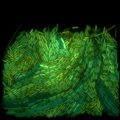
The mechanisms connecting growth with cell size have been mysterious – up till now: in a recent publication in Current Biology, researchers from TU Delft and AMOLF have uncovered that the signaling molecule ppGpp is essential to regulate cell size. Surprisingly, they also discover cells adjust their sizes to concentrations of ppGpp, rather than strictly according to growth rate.
07 February 2022
ERC Proof of Concept Grant for Arjen Jakobi
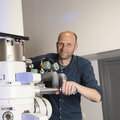
Arjen Jakobi (Department of Bionanoscience) receives the ERC Proof of Concept Grant for his groundbreaking research on cryogenic electron microscopy (cryo-EM). "This grant will allow us to take our new CryoChip technique for high resolution images of protein molecules to the next level for the development of new drugs," says Jakobi.
24 January 2022
TU Delft's Reactor Institute takes another step forward as a testing ground for innovation

The Reactor Institute Delft (RID) continuously invests in better measuring methods and techniques in order to facilitate pioneering research. We have accelerated this with the OYSTER (Optimised Yield - for Science, Technology & Education - of Radiation) programme.
14 January 2022
Targeted innovation policy can reduce the cost of the energy transition

The cost of new technologies such as those used to make green hydrogen can quickly be reduced if the government applies a stable and targeted innovation policy. This is according to Paulien Herder, professor of Energy Systems and Dean of the Faculty of Applied Sciences. She is also a Topteam member in the Energy Top Sector. As the Captain of Science she represents knowledge institutions. Herder was also closely involved in the GroenvermogenNL proposal for green hydrogen and green chemistry that was accepted by the National Growth Fund.
11 January 2022
ERC Starting Grant for four TU Delft researchers
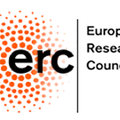
The European Research Council (ERC) has announced the ERC Starting Grants for young researchers. Four of them are scientists from TU Delft. This European grant of €1.5 million for a five-year programme is intended to enable individual scientists to build their own teams and conduct groundbreaking research.
23 December 2021
Super-fast technique measures heme enzyme reaction as it happens
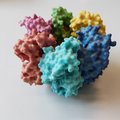
Researchers from TU Delft found an unexpected new enzyme intermediate at work in enzymes that contain heme, a cofactor that’s vital for many processes in our body such as the breaking down of toxins in the liver. The researchers used new, rapid techniques, which are less invasive than existing methods. The results, published in ACS Catalysis, increase our understanding of heme proteins and enzymes and how they can be engineered.
16 December 2021
NWO-Veni grant for 4 researchers of TNW faculty
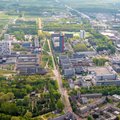
NWO has awarded Veni grants to four researchers from the TNW faculty, with funding of up to 250,000 euros per grant. This will enable these researchers to further develop their own research ideas over a period of three years.
08 December 2021
Counting electronic states in a single molecule
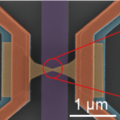
A team of researchers from the UK, the Netherlands, Switzerland and Belgium has managed to measure changes in the energy levels of a free radical molecule in a magnetic field. They were able to measure directly the thermoelectric currents inside the molecule, using a new method called thermocurrent spectroscopy. This method, published in Nano Letters, is an important tool for both chemical synthesis and single-molecule electronics.
08 December 2021
Building a lensless microscope to study next-gen chips
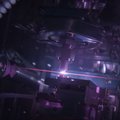
Transistors used in computer chips have now reached the tiny scale of mere nanometres, yet chips manufacturers still lack the optical power to study this new generation of chips. Researchers from TU Delft have built a lensless microscope to make an image at the scale of 200 nanometres. With further refining of this technique the researchers expect to bring images of nanoscale transistors within their grasp in the next two years.
24 November 2021
TU Delft creates one of the world’s most precise microchip sensors – thanks to a spiderweb
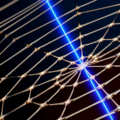
A team of researchers from TU Delft managed to design one of the world’s most precise microchip sensors; the device can function at room temperature – a ‘holy grail’ for quantum technologies and sensing.